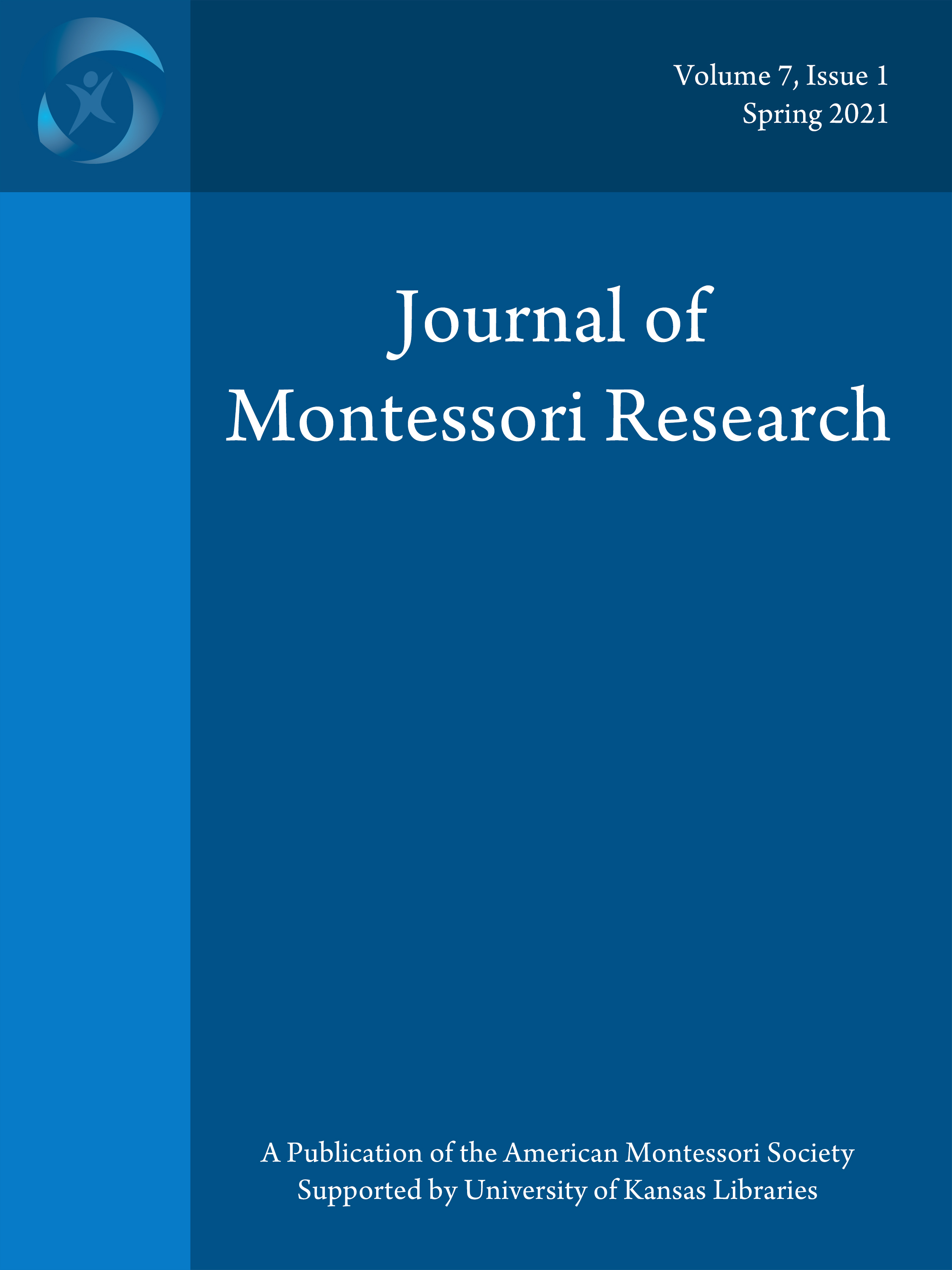Montessori Education at a Distance, Part 1
A Survey of Montessori Educators’ Response to a Global Pandemic
DOI :
https://doi.org/10.17161/jomr.v7i1.15122Mots-clés :
Montessori, distance learning, COVID-19, pandemicRésumé
The transition to distance learning in the spring of 2020 caused by COVID-19 was particularly challenging for Montessori educators and students because key elements of the Method were not directly transferable to this new and hastily designed format. Hands-on learning with Montessori materials and learning in a community, as well as careful teacher observation, could not be easily replicated when children were learning from home. To understand how educators applied Montessori principles to serve children and families in these highly unusual circumstances, we surveyed Early Childhood and Elementary Montessori teachers about how they translated core elements of Montessori education to a distance-learning environment. The overall results suggest that Montessori distance-learning arrangements balanced live videoconference experiences for children with offline hands-on activities, while also relying on parents’ and caregivers’ involvement. Teachers reported that they largely designed learning experiences themselves, without significant support or guidance from school leaders. Still, teachers reported that they were able to uphold Montessori principles to only a moderate degree under the circumstances. While teachers understandably hunger for support, professional connections, and a return to the classroom experiences that drew them to the field of Montessori education, this study highlights factors that may affect the transition back to school for teachers, parents and caregivers, and students when face-to-face instruction resumes for all children.
Références
Culclasure, B., Daoust, C., Cote, S., & Zoll, S. (2019). Designing a logic model to inform Montessori research. Journal of Montessori Research, 5(1), 35–49. https://doi.org/10.17161/jomr.v5i1.9788
Debs, M., & Brown, K. E. (2017). Students of color and public Montessori schools: A review of the literature. Journal of Montessori Research, 3(1), 1–15. https://doi.org/10.17161/jomr.v3i1.5859
MacDonald, G. (2016). Technology in the Montessori classroom: Benefits, hazards and preparation for life. NAMTA Journal, 41(2), 99–107. https://files.eric.ed.gov/fulltext/EJ1112230.pdf
Montessori, M. (2012). The 1946 London lectures. Montessori-Pierson Publishing.
National Center for Montessori in the Public Sector. (n.d.). The Montessori census. https://www.montessoricensus.org/
Saldaña, J. (2009). The coding manual for qualitative researcher. SAGE.
Walston, J., Redford, J., & Bhatt, M. P. (2017). Workshop on Survey Methods in Education Research: Facilitator’s guide and resources (REl 2017–214; ED573681). U.S. Department of Education, Institute of Education Sciences, National Center for Education Evaluation and Regional Assistance, Regional Educational Laboratory Midwest. https://files.eric.ed.gov/fulltext/ED573681.pdf
W. K. Kellogg Foundation. (2004). W. K. Kellogg Foundation logic model development guide. https://www.wkkf.org/resource-directory/resources/2004/01/logic-model-development-guide
Téléchargements
Publiée
Numéro
Rubrique
Licence
(c) Copyright Angela K. Murray, Katie E. Brown, Patricia Barton 2021

Ce travail est disponible sous licence Creative Commons Attribution - Pas d’Utilisation Commerciale 4.0 International.


